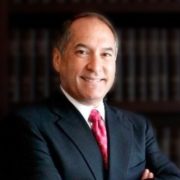I HAVE long suspected that with the way the California Service Center (CSC) adjudicates humanitarian revalidation requests, it is virtually impossible for any beneficiary in the Philippines to qualify. Little or no discretion is being exercised, and it seems the Humanitarian Revalidation adjudicators have forgotten the “humanitarian” portion of humanitarian revalidation. They simply find ways to deny humanitarian revalidation requests.
In fact, I served a Freedom of Information Act (FOIA) request, to find out what CSC’s denial rate was. I requested:
• the total number of humanitarian revalidation’s requests submitted to the CSC since 2010
• the total number of humanitarian revalidation requests that were approved since 2010
• the total number of humanitarian revalidation requests that were denied since 2010.
I just recently received the CSC’s response, and the results are shocking, but really not surprising:
A total of 10,755 humanitarian revalidation requests were submitted to CSC since 2010.
A total of 720 humanitarian revalidation requests were granted! That means less than 7% of the humanitarian revalidation requests submitted were granted.
A total of 7309 humanitarian revalidation requests were denied.
There are some discrepancies because not all I-130 petitions were properly updated in their system, and there may be duplicate receipts because some cases were converted from humanitarian revalidation to the survivor law, section 204 (l), where humanitarian revalidation is not required if the beneficiary was in the U.S. at the time of the petitioner’s death and remained or resided continuously in the U.S.
The CSC concedes there are no regulations setting forth factors for eligibility, and they therefore robotically rely on seven factors listed in the Department of State’s (DOS) Foreign Affairs manual (FAM):
(1) Disruption of an established family unit;
(2) Beneficiary is elderly or in poor health;
(3) Beneficiary has had lengthy residence in the United States;
(4) Beneficiary has no home to go to;
(5) Undue delay by DHS or consular officer in processing the petition or visa;
(6) Hardship to U.S. citizens or lawful permanent residents; and
(7) Beneficiary has strong family ties in the United States.
In applying these supposed “eligibility” factors, virtually no Filipino in the Philippines could ever qualify for humanitarian revalidation, as at least 5 of these 7 factors would not even apply! For example, if the applicant is relatively young and healthy and living in the Philippines, they would not be elderly or sickly, there is technically no “disruption” of the family unit in the U.S., and they would obviously not have “lengthy residence” in the U.S., but instead have a “home” to go to. Since it typically takes many years for the priority date on most petitions to become current, obviously there would be no “undue delay” by the USCIS.
It appears that the CSC has set up and relied on Humanitarian Revalidation factors that are virtually impossible to meet or satisfy. If so, why even bother having these factors? Why not just simply flip a coin?
What makes this situation more frustrating is that if the beneficiary happened to be in the U.S. when the petitioner died, (even if TNT) then, under the “Survivor Law,” the petition is automatically revalidated, without anyone having to prove any of these unachievable factors. Thus, if a person came to the U.S. years ago as a visitor, overstayed his or her visa, worked without authorization, and otherwise violated the immigration laws, that person would be quickly and easily entitled to pursue his or her green card, despite the death of the petitioner. But, if they obeyed the laws, and patiently waited in the Philippines for their petitions, then they have to satisfy these seven factors, which are virtually impossible to satisfy.
In conclusion, the relief is called Humanitarian Revalidation and the goal is family reunification. The CSC needs to inject a little more humanity in adjudicating these requests. The goal should be to exercise discretion, and not to see how many form denials can be generated. A miserable 7% approval rate shows the CSC is really not exercising any discretion, but instead is looking for ways to always deny humanitarian revalidation requests. They need to be reminded of their mission statement and that they are the agency within Homeland Security in charge of providing/approving immigration “benefits,” not looking for ways to always deny them.
* * *
Michael J. Gurfinkel has been an attorney for over 35 years and is licensed, and an active member of the State Bars of California and New York. All immigration services are provided by, or under the supervision of, an active member of the State Bar of California. Each case is different and results may depend on the facts of the particular case. The information and opinions contained herein (including testimonials, “Success Stories”, endorsements and re-enactments) are of a general nature, and are not intended to apply to any particular case, and do not constitute a prediction, warranty, guarantee or legal advice regarding the outcome of your legal matter. No attorney-client relationship is, or shall be, established with any reader.
WEBSITE: www.gurfinkel.com
Follow us on Facebook.com/GurfinkelLaw and Twitter @GurfinkelLaw
Call Toll free to schedule a consultation for anywhere in the US:
1-866-487-3465
(866) – GURFINKEL
Four offices to serve you:
LOS ANGELES · SAN FRANCISCO · NEW YORK · PHILIPPINES






